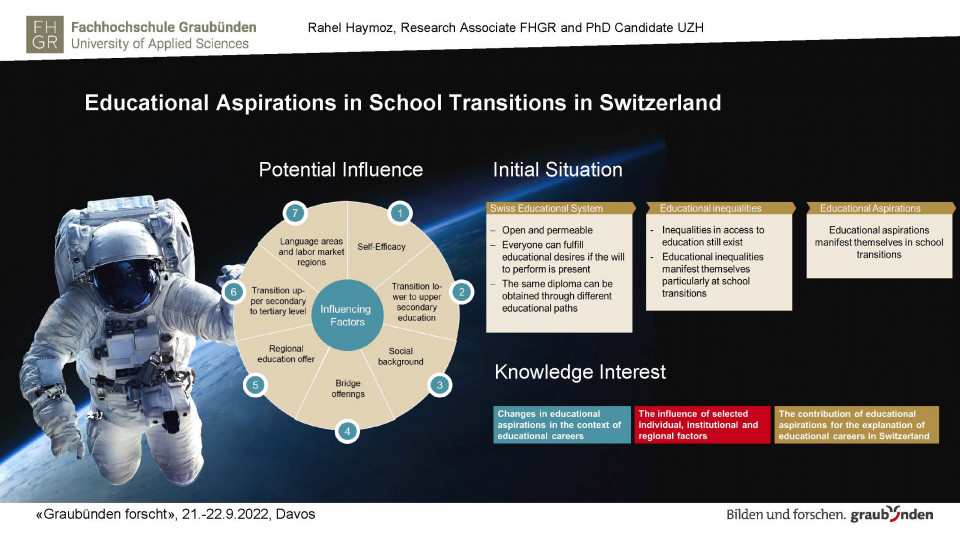What is the significance of students’ educational aspirations in the course of their educational careers, to what extent are they influenced, and how does this manifest itself, especially during school transitions?
If one takes a look at the structure and organization of the Swiss education system, one could assume that every child living in Switzerland can fulfill his or her educational aspirations - provided that the will and the willingness to perform are available for the path to the dream job. The Swiss education system is characterized, among other things, by its permeability. The Federal Constitution states: “The Confederation and the cantons shall jointly ensure, within the scope of their competence, a high quality and permeability of the Swiss education system.” (Swiss Federal Constitution, Art. 61a, para.1). This permeability makes it possible to obtain the same diploma via different educational paths (EDK, 2021). Another feature that distinguishes the Swiss education system is its openness. Anyone can complete the desired education, provided he or she meets the relevant requirements (EDK, 2021). There are exceptions where only a limited number of training companies exist for basic vocational training and in a few fields of study where a numerus clausus regulates the number of students (ibid.).
This contrasts with the fact that inequalities in access to education still exist in Switzerland - despite the permeable and open education system and regardless of performance. School transitions are particularly "prone" to the occurrence of such inequalities (Becker & Zangger, C., 2013). At the same time, however, it is precisely these transitions in which educational aspirations manifest themselves, because it is at these points in time that educational decisions are made for the further course of education (Hermes, 2017).
In Switzerland, there are studies on educational aspirations at individual school transitions, most of them on the transition from elementary school to lower secondary school. Most studies focus on the influence of parental aspirations on the assignment to lower secondary school or they shed light on differences in educational aspirations of adolescents with and without a migration background as well as on correlations between parental aspirations and school careers (Stamm, 2005; Neuenschwander et al., 2013). A study by Becker & Glauser (2017) was able to prove that educational aspirations of adolescents and regional opportunity structures are related. However, there is a lack of studies examining learners' educational aspirations over time at multiple school transitions, shedding light on the extent to which these aspirations depend on influencing factors at different levels (from individual to institutional and societal conditions). In particular, interesting research gaps exist in the school transition from lower to upper secondary education in connection with the use of bridging offers.
The dissertation investigates the extent to which young people's educational aspirations change during school transitions from lower secondary level to tertiary level in Switzerland and on which influencing factors this depends. The dissertation examines selected influencing factors at the individual, institutional, and regional levels and draws on existing longitudinal survey and register data from the TREE2 cohort of the University of Bern and the
LABB study of the Swiss Federal Statistical Office. Data linkages are used to determine the contribution of educational aspirations to explaining educational careers in Switzerland.
